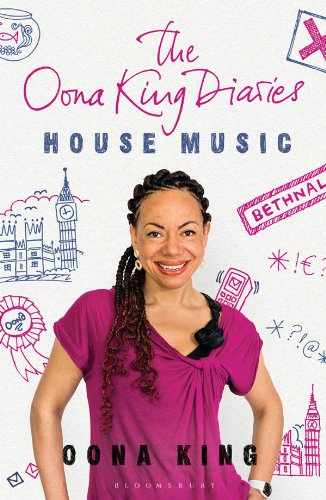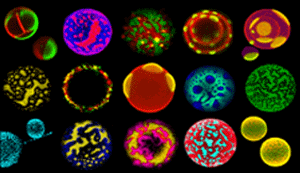White supremacy is so last century. These days it's on-trend to be a mixed-race supremacist . Unlike the British National Party, mixed-race people can now point to scientifically credible research that highlights the various biological advantages of their ethnicity.
And that's not to mention the anecdotal evidence pointing to sports stars and celebrities such as Lewis Hamilton, Theo Walcott and Leona Lewis as representing the new ideal of physical beauty.
But is this just a media fad, sparked by the election of the world's most famous mixed-race person as President of the United States? And now that mixed-race people are our fastest growing ethnic group, what does it mean for Britain's uneasy relationship with race?
Being mixed race is a mixed blessing. Growing up, I mainly saw the downsides, which ranged from a mild feeling of not belonging, to a profound understanding of what it is to be an outcast. But as an adult I've mainly experienced the upside: a cultural bilateralism that can be beneficial in much the same way as speaking two languages.
And, best of all, it affords an ability to escape the dead weight of preconception. Sometimes it's like being in one of those fairy tales where the hero wears a cloak of invisibility.
Depending on my clothing and how I wear my hair, I've had natives of Spain, India and Brazil mistake me for one of them.
The most remarkable hour of my life came when I put on a head scarf and went out alone to witness riots on the 'Arab street' in the Gaza Strip in June 2003. If the thousands of young Palestinians had known I was a Jew with an American and British passport, and an MP to boot, at best they would have kidnapped me, at worst killed me on the spot.
And now it seems that mixed race genes are being hailed as the latest Darwinian 'must-have' accessory. If you spent your childhood being called a 'mongrel' in the playground, the recent research by Cardiff University, which seems to show that mixed-race people are more attractive and more successful, may bring a wry smile to your face.
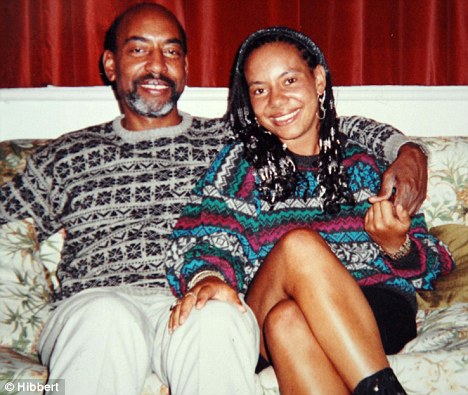
Heritage: Oona in 1987 with her father who is African American
Dr Michael Lewis, who conducted the research said: 'Darwin suggested that diversity of genes led to greater genetic fitness and this in turn seems to be linked to attractiveness.'
Far from being an abomination of the natural order, mixed-race children are apparently biologically preferable. The logic is that the wider the gene pool (the further apart genetically two parents are) the greater protection from illness or genetic abnormality their children enjoy.
I don't know about being healthier and prettier (I've got a lousy immune system and can wake the dead without make-up), but some advantages to being mixed race are undeniable.
It wasn't always like that. I was born in Sheffield in 1967 to an African-American father and a white Jewish Geordie mother whose family was Irish, Scottish and Hungarian.
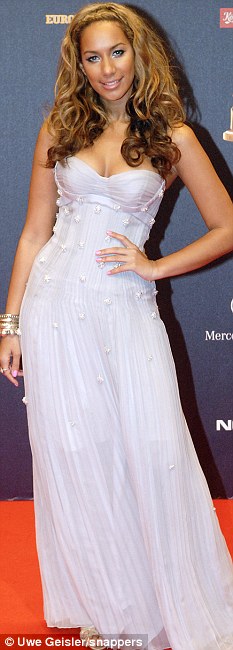
Looking good: Scientists now say mixed-race people such as Leona Lewis are genetically healthier and more attractive
Before 1967 it was illegal for blacks and whites to marry in 16 American states, and there was general horror at the offspring of inter-racial relationships. It can't have been great to be mixed race (or black) in the Sixties, let alone the 1860s when my great-grandfather Allen was born exactly a century before me, in the American South, two years after slavery was abolished.
His father Horacce was black, and his mother Eliza is listed in the 1870 census as 'mulatto' (mixed race). Both Horacce and Eliza were slaves until their 40s. I wonder what they would have made of a black man in the White House. It would presumably have stupefied them.
At the time it stupefied me. On the morning of Barack Obama's election victory in 2008, when my three-year-old son asked me why I was crying, I had to stop myself from saying: 'Because a black man has become President.' I didn't want to put it into his head that it was extraordinary for a black person to become President.
And yet Obama's ethnicity remains controversial. The fact that he will not describe himself as mixed-race in this year's census has some groups up in arms. Instead he chooses to tick the box 'Black, African American, or Negro'. He rejected the box that described him as mixed.
As someone who often ticks this box too, I know it wasn't done as a slight to the white community, nor his white family. In his memoirs he says of his white mother: 'She was the kindest, most generous spirit I have ever known.'
But no one, including his mother, can change the fact that his identity is black. That's the point: black is not a colour, it is an identity.
Growing up, the thing that determined our identity most was that white society viewed us as black. That's why most mixed-race people of my generation, the ones labelled 'mongrel', see themselves as black.
Becoming belatedly 'fashionable' doesn't change anything for us. But it changes everything for our kids. They won't have chips on their shoulders. No one could accuse the prescandal Tiger Woods of having low esteem, often a mixed-race trait.
But overall, the new excitement around mixed-race people doesn't make me clap my hands. For if we detach ourselves from the black experience, we destroy our identity. That is why, although I'm happy to describe myself as 'mixed race', my identity is black. And although it's nice to think I could have rebuked the bullies shouting 'mongrel' with the claim: 'In fact, I'm genetically superior,' this would only create reverse racism.
 |
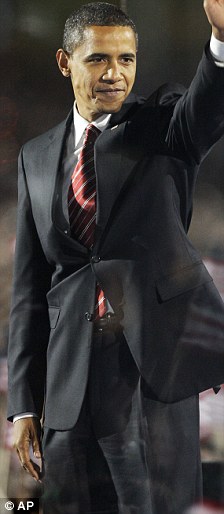 |
'The beautiful people': British Formula One racing driver Lewis Hamilton (left) and U.S. president Barack Obama are both of mixed race
I recall being shunned by every white boy in the class as a 13-year-old girl. I never could have imagined the white mainstream would one day crown us 'the beautiful people'.
So what happens if it's finally proved beyond doubt that, on average, mixed-race people are more attractive? Ironically this could be disastrous - both for our relations with the rest of the black community, and perhaps more importantly, with ourselves.
Throughout history, those who think they are physically superior to others inevitably become morally inferior. We should heed Martin Luther King's dream that judgment rests on character, not looks or skin colour.
It might make us smile to read recent claims that 'mixed-race is the perfect face'. But it won't make us happy. If anything, this fad for mixed-race supremacy could taint mixed-race people with a very ugly streak. And call me prejudiced, but I don't want to get lumped in with the BNP.
• Oona King is Head of Diversity for Channel 4.
